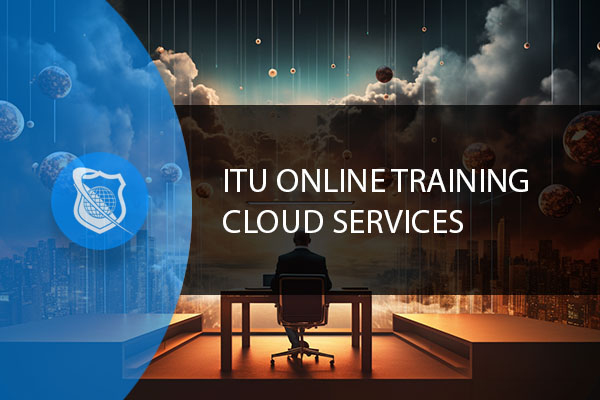What is Fixed Wireless Access (FWA)?
Definition: Fixed Wireless Access (FWA)Fixed Wireless Access (FWA) refers to a type of high-speed internet connection that uses wireless technology to deliver broadband services to fixed locations such as homes


At ITU, we offer an exclusive Cloud Computing training series designed to prepare you for certification and/or to help you gain knowlege of all Cloud based platforms including AWS, Azure and Gooogle Cloud.
Get access to this exclusive Cloud Computing Training today.

At ITU, we offer an exclusive Cloud Computing training series designed to prepare you for certification and/or to help you gain knowlege of all Cloud based platforms including AWS, Azure and Gooogle Cloud.
Get access to this exclusive Cloud Computing Training today.

Your career in information technology last for years. Technology changes rapidly. An ITU Online IT Training subscription offers you flexible and affordable IT training. With our IT training at your fingertips, your career opportunities are never ending as you grow your skills.
Plus, start today and get 30 days for only $1.00 with no obligation. Cancel anytime.
For candidates preparing for the AZ-305 exam, a comprehensive understanding of these advanced Azure services is crucial. Not only does this knowledge contribute to passing the exam, but it also forms the foundation of a competent Azure Solutions Architect’s skill set. Continuous learning and hands-on experience with these services are key to mastering the exam content and excelling in Azure architecture roles.
Before attempting the AZ-305 exam, it’s recommended that you have already earned the Azure Administrator Associate certification by passing the AZ-104 exam. Additionally, having hands-on experience in implementing and managing Azure services is crucial for understanding the advanced concepts covered in the AZ-305
The AZ-305 exam is considered more challenging than some other Azure exams due to its advanced level and focus on designing solutions in Azure. It requires not only a deep understanding of Azure services but also the ability to apply this knowledge in complex, real-world scenarios.
The AZ-305 exam covers a range of topics, including designing identity, governance, data storage, business continuity, and infrastructure solutions in Azure. It emphasizes the application of Azure services in designing scalable, secure, and efficient cloud solutions.
The amount of study time varies depending on your background and experience with Azure. However, it’s generally recommended to allocate several weeks to a few months for thorough preparation. This includes studying Azure concepts, practicing in a real Azure environment, and taking practice exams.
Yes, Microsoft offers a variety of resources for AZ-305 exam preparation, including official learning paths, documentation, and practice tests. Additionally, there are numerous third-party resources, including online courses and study guides, which can be extremely helpful in your preparation.
Lorem ipsum dolor sit amet, consectetur adipiscing elit. Ut elit tellus, luctus nec ullamcorper mattis, pulvinar dapibus leo.
$49.99 Original price was: $49.99.$16.99Current price is: $16.99. / month with a 10-day free trial
Definition: Fixed Wireless Access (FWA)Fixed Wireless Access (FWA) refers to a type of high-speed internet connection that uses wireless technology to deliver broadband services to fixed locations such as homes
Definition: Mutation TestingMutation testing is a software testing technique where the software is modified or “mutated” in small ways to create aWhat Is Mutation Testing?Definition: Mutation TestingMutation testing is a
Definition: Signature-Based DetectionSignature-based detection is a cybersecurity mechanism that identifies threats by comparing incoming data against a database of known threat signatures. These signatures are unique strings of data or
Definition: Service DiscoveryService Discovery is a mechanism used in microservices architecture and other distributed systems to automatically detect services available on a network. This process ensures that service consumers can
Definition: Lean StartupThe Lean Startup is a methodology for developing businesses and products that aim to shorten product development cycles and rapidly discover if a proposed business model is viable.
Definition: Language Integrated Query (LINQ)Language Integrated Query (LINQ) is a powerful set of technologies based on the integration of query capabilities directly into the C# programming language. This allows developers
Definition: XTS (XEX-based Tweaked-codebook Mode with Ciphertext Stealing)XTS, which stands for XEX-based Tweaked-codebook mode with ciphertext Stealing, is an encryption mode used primarily in the encryption of data on storage
Definition: Ransomware-as-a-Service (RaaS)Ransomware-as-a-Service (RaaS) is a business model utilized by cybercriminals where ransomware software is leased to affiliates or customers. This model allows individuals with minimal technical knowledge to launch
Definition: Data CubeA data cube is a multi-dimensional array of values, commonly used to describe data in a multi-dimensional space. The data cube is a key concept in data warehousing
Definition: Off-Canvas MenuAn off-canvas menu is a type of navigation menu that is hidden off-screen by default and slides into view when triggered by a user action, such as clicking
Definition: Secure Access Service Edge (SASE)Secure Access Service Edge (SASE) is a network architecture model that combines wide area network (WAN) capabilities with comprehensive security functions such as Secure Web
Definition: Flat NetworkA flat network is a type of network architecture where all devices are part of the same broadcast domain. This means that all devices can directly communicate with
ENDING THIS WEEKEND: Train for LIFE at our lowest price. Buy once and never have to pay for IT Training Again.